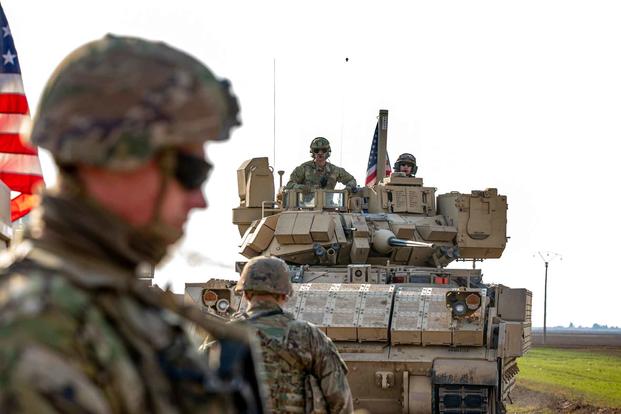Armed militias in Iraq and Syria have launched at least 40 separate drone and missile strikes against US forces over the past three weeks in response to American support for Israel in the war with Hamas.
A malfunctioning drone in Iraq may have helped prevent America from being drawn into the widening Middle East conflict. Two US officials said the drone, launched from an air base in Erbil by Iranian-backed militants on 26 October, overcame US air defences and crashed around 5 a.m. into the first floor of a barracks housing US troops.
However, the explosive-laden device failed to detonate, leaving only one soldier with minor injuries. According to the Pentagon, the incident was one of at least 40 separate drone and rocket attacks on US troops by Iranian-backed militants in Iraq and Syria over the past three weeks in response to US support for Israel in the war in the Gaza Strip.
These firings have so far resulted in several dozen casualties, with many of the rockets and unilateral attack drones intercepted by US air defences in Iraq and Syria, where a total of 3,400 US troops are based.
David Schenker, a former US assistant secretary of state at the Washington Institute for Near East Policy, said the risk of a direct clash between Iran and the US is growing. The possibility of a major strike that would draw America into the conflict “is very real,” he noted. David Schenker said of Iraqi and Syrian militias:
I think they are calibrating the attacks to harass rather than kill en masse US troops. But there’s a lot more they can do.
How President Joe Biden will react to a major terrorist attack that will kill a large number of Americans remains to be seen. Ahead of next year’s presidential election, Biden has so far sought to limit the US role in the conflict, mainly by providing military aid to Israel.
US Secretary of State Antony Blinken travelled to Iraq, where most of the attacks on US troops have occurred, on Sunday to persuade Iraqi Prime Minister Mohammed Shi’a al-Sudani to take action against militias operating there and prevent the conflict from escalating.
However, according to five senior lawmakers in Sudani’s ruling coalition, the prime minister’s security adviser, and a militia commander, Sudani has not been able to persuade the militias to keep up the onslaught or persuade their Iranian financiers to restrain them.
On 23 October, the prime minister and about 10 senior members of his government met in Baghdad with the commanders of about a dozen militia groups to get them to stop attacking US troops. Ali Turki, a Shi’ite lawmaker in the governing coalition as well as a commander with the powerful Iranian-backed Asaib Ahl al-Haq militia, said:
No one – not the prime minister or anyone else – can stand against our religious duty.
Arif al-Hamami, another Shiite lawmaker, said the prospects for diplomacy looked bleak:
I don’t think that the prime minister has the power to stop the attacks as long as Israel is committing atrocities in Gaza with American help.
The governments of Iraq and Iran did not immediately respond to a request for comment on militia attacks and the risk of escalation of the conflict.
The war began on 7 October when militants from Hamas, the Iranian-funded group that rules the Palestinian enclave of Gaza, stormed into southern Israel, killing 1,400 people, mostly civilians, and taking more than 240 hostages. Since then, Israel has continuously shelled the coastal territory, killing more than 10,000 people, including many children. Iran says it was not involved in the Hamas attack on Israel on 7 October, although it welcomed the attack.
